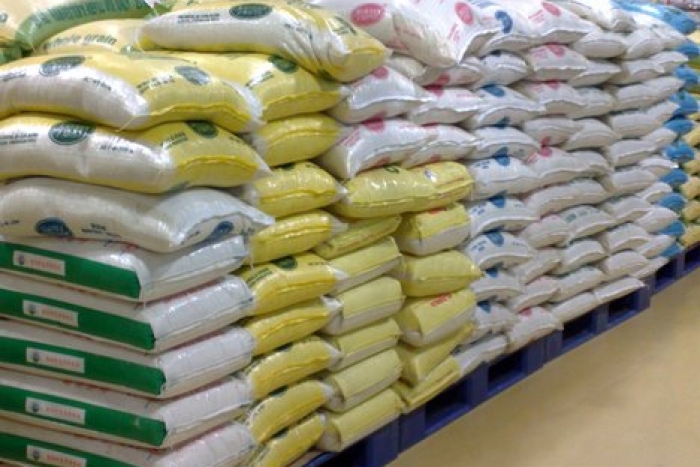Last week, the Minister of Finance announced the Federal Executive Council had approved an increase in VAT from 5% to 7.5%. Minister Zainab Shamsuna Ahmed also went further to explain that the government will be engaging with various stakeholders in a bid to get the increased passed into law by the National Assembly.
As expected, there have been several commentaries around this announcement with some for or against the policy. However, a twitter user and Senior Manager Tax and Transfer Pricing at KPMG Victor Adegite, weighed in on the discourse providing a useful insight into other areas of Nigeria’s VAT system that is perhaps flawed.
He tweeted this in a series of thread which we have put together as an article for our readers who may not be on twitter.
Hello friends! Let’s talk about VAT in Nigeria and some perspectives on the proposed hike to the VAT rate. It’s a thread! #NigeriaVAT
1. We are all aware of the plan by the FG to increase VAT rate from the current 5% to 7.5% come 2020. While several “experts” and public affairs commentators have complained about how low our VAT rate is compared to other countries in Africa…#NigeriaVAT
2. …they have failed to appreciate the deficiencies of the Nigerian VAT system.
There are reasons why it may be wrong to compare VAT in Nigeria with that of other countries. Our VAT is not a proper VAT. It is more of a sales tax than VAT. #NigeriaVAT
3. What is VAT? VAT is a tax on the supply of goods and services, which is eventually borne by the final consumer but collected at each stage of the production and distribution chain. #NigeriaVAT
4. What is sales tax? A sales tax is a consumption tax imposed by the government on the sale of goods and services. A conventional sales tax is levied at the point of sale, collected by the retailer, and passed on to the government. #NigeriaVAT
5. Across the world sales tax ranges could range from 1% to 10% and are levied by various arms of government. While VAT ranges from 5% to 25% and is centrally administered in most countries. #NigeriaVAT
6. As sales tax is a tax on the sales (i.e. sale price), the rates are often low. VAT is effectively levied on the “value-added”, hence the relatively high rates.#NigeriaVAT
7. We will proceed to examine the operations of a typical VAT system. #NigeriaVAT
8. VAT is levied at each stage of the supply chain. It is a tax on consumers (that is users of the output of the previous stage of production). However, it is typically operated with a credit mechanism (i.e., in the form of input VAT) …#NigeriaVAT
9. …such that each producer along the chain is allowed to claim the tax paid at the previous stage when passing the product of his effort to the consumer on the next level of the supply chain. #NigeriaVAT
10. The credit, however, stops at the stage where the product can no longer be passed further down (i.e., when it is purchased by the final consumer). Hence, the final consumer bears the tax fully at the final stage. #NigeriaVAT
11. Generally, the mechanism used for accounting for VAT is that each business offsets the total VAT paid on purchases (called ‘input tax’) in a given period against the total VAT charged on sales (‘output tax’), and pays any excess tax to the tax authority.#NigeriaVAT
12. Since the tax charged at the input stage is used to reduce the tax charged at the output stage, the difference between the output tax and input tax is the tax on the additional value added at that stage of the production. #NigeriaVAT
13. A typical supply chain would appear like this in the VAT system. Where a product moves from raw materials Producer A to Manufacturer B at N1,000, then to Wholesaler C at N 1,500. The product is then subsequently sold to Retailer D at N 2,000 …#NigeriaVAT
14. …and finally to the Consumer who pays N 2,500 to the Retailer. #NigeriaVAT
15. VAT of 5% will be charged and collected at each stage , that is N50 ( 5% of N1,000,) N75 ( 5% of N1,500), N100 (5% of N2,000) N125 (5% of 2,500). The interesting thing is that the collectors of these VAT are not expected to remit N350 but N125! #NigeriaVAT
16. At each stage, the VAT collector will offset its input VAT against the VAT collected (Output VAT) and remit the difference to the FIRS. #NigeriaVAT
17. From our example above Manufacturer B collects N75 VAT when he sells to Wholesaler C , however, he had paid VAT of N50 to Producer A so he will only remit N25 ( N75-N50). #NigeriaVAT
18. The example above is how VAT should work in all cases. However, the VAT law in Nigeria creates 3 categories of VATable goods and services. 1. Where you manufacture or buy for resale, you can claim your input VAT as explained above.#NigeriaVAT
19. 2. Where you buy fixed assets and pay VAT on same, you cannot claim input VAT on the purchase. You are permitted to capitalize it as part of the cost of the fixed assets. #NigeriaVAT
20. 3. Where you have paid VAT on services which form part of your input in producing goods and services, you are not permitted to claim the Input VAT on this! This is where our VAT law behaves like a sales tax!#NigeriaVAT
21. Let’s consider a call center in Lagos with 500 employees. The call center has incurred cost on services like data, telephone, and transportation services for its workers. These services are key to its operations. #NigeriaVAT
22. The company pays 5% VAT on the services provided by its vendors. However, when the call center bills its own client, it will charge VAT at 5%. #NigeriaVAT
23. Typically, it is expected that the call center’s input VAT ( VAT suffered on data, telephone and transport services) is deducted from the VAT (output VAT) collected from its client and the difference paid to the FIRS. #NigeriaVAT
24. Based on the provisions of our VAT law, this not permitted! The call center will have to remit the output VAT without the benefit of offsetting the input VAT. #NigeriaVAT
25. This is where we will stop this week! If we have 1,500 retweets to this thread. We will continue next week and examine some special rules for Nigeria VAT and its challenges. END. #NigeriaVAT
Ugodre, Nairametrics Founder also weighed in on the thread with his own comments. See below
I recall being asked to pay vat after we sold as property. The FIRS official claimed because commercial property wasn’t stated as a VAT exempt item, we had to pay VAT for it.
— Ugodre (@ugodre) September 14, 2019
Here is the original thread from Victor Adegite. Follow Victor for part two of the thread.
Hello friends! Let’s talk about VAT in Nigeria and some perspectives on the proposed hike to the VAT rate.
It’s a thread! #NigeriaVAT— Victor Adegite (@VAdegite) September 14, 2019












